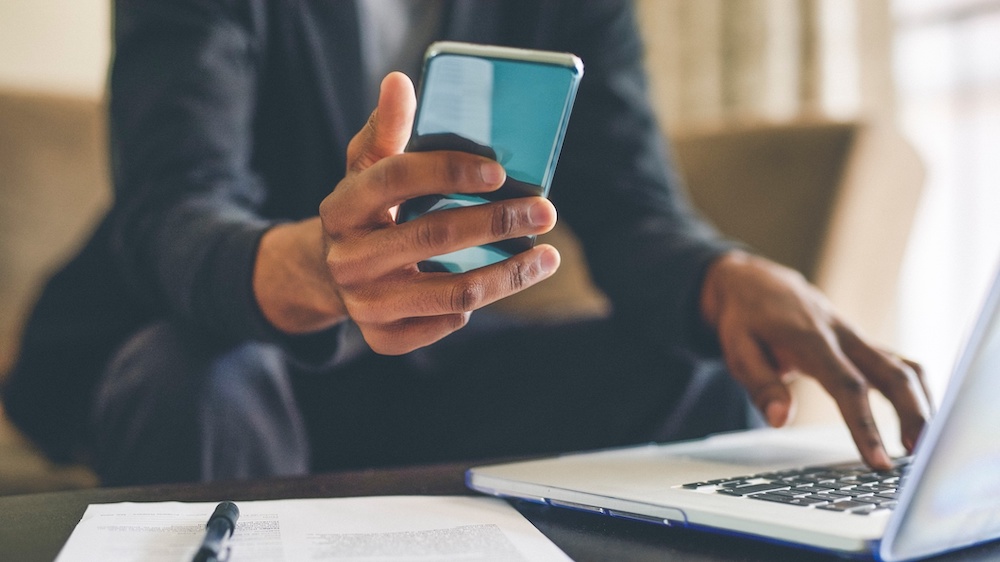If you’re interested in sharing your opinion on any cultural, political or personal topic, create an account here and check out our how-to post to learn more.
____
We’ve all seen it. Conspiracy theories and falsehoods that our family, neighbors, gym buddies or high school classmates spread on Facebook. The U.S. government is trying to control us with masks. The Chinese government created the virus. And, in the critical early days of the pandemic, the devastating, “Black people can’t get COVID.”
It is all too easy to unfollow and unfriend without attempting to correct the record. Arguing on the internet is exhausting. But have you ever noticed what happens when you respectfully reply to their posts with the truth? Sometimes the conversation devolves, but sometimes your acquaintance pulls back. She admits she “didn’t know that;” he promises “to look into that.” Sometimes they’ll even acknowledge “it’s hard to know what to believe.”
And there’s the rub. Voters are inundated every day with a sea of misinformation, litanies of lies they’re prompted to “share if you agree.” The toxicity spews from Fox News, the Russians and our own president, who in a national town hall refused to denounce QAnon. And much of it has been targeted at communities of color — communities who justifiably distrust institutions that have marginalized and oppressed them since 1619.
Those are exactly the people we’re working to turn out at For Our Future, the folks whose decision whether to cast a ballot will determine the outcome of this election. Credible messengers can cut through the chaos and cacophony aimed at our community this election season.
Our organization focuses on building long-term relationships with people who don’t always vote. We do so by listening to them and asking about the issues they care most about — rather than coming at them with preconceived, pre-packaged messaging that we assume they want to hear. And we are a permanent presence — unlike campaigns, we don’t come calling right before the election and pack up the day after. Instead, we stay in town and organize throughout the year on issues of local importance.
Much of our recent work has centered on encouraging people to vote by mail to keep their communities safe. My elderly parents, both ardent voters, have other health conditions and need to vote by mail to protect themselves from contracting COVID. And a national shortage of poll workers could mean fewer polling locations and longer lines. We need to ensure our community votes now so that we don’t see a nationwide repeat of Wisconsin’s spring election or Georgia’s primary. While many people will wait in line for hours to vote, many more can’t or won’t. And the margin in many states will be too slim to have people stay or go home.
But in some battleground states, voting by mail has never been prevalent. So the practice is new to many Black voters, many of whom presume you need an excuse to do so. Because we fought so hard for the right to vote, voting is an important cultural experience. It’s why many Black people dress up to go vote. To tell someone “you don’t need to vote in-person, just mail your ballot” is a tough hill to climb.
Adding to voters’ apprehension about voting by mail is the deluge of disinformation that, whether deliberate or not, tends to suppress the Black vote. In Virginia, a rumor has permeated that the ballot tracking system — which is a safety net to voters wary of voting by mail — will allow election officials to throw out ballots based on party affiliation (even though there is no party registration in Virginia). In Wisconsin, a voter we talked to was told by a friend that you had to have a disability to request an absentee ballot. (You don’t).
Thankfully our organizers — who are largely people we’ve hired from the communities we engage — are breaking through the noise, one voter and one conversation at a time. We know that people are much more likely to trust information from the people they know, which is why we also catalyze super-volunteers to engage their friends and family about the election in their own words. We arm these relational organizing volunteers with the tools they need to nudge their personal contacts who are less likely to vote. Our staff and volunteers have walked those voters through how to fill out an absentee ballot application, showed them how to track their ballots online and debunked myths that prevent people from voting by mail.
Hillary Clinton lost by fewer than 80,000 votes in Pennsylvania, Michigan and Wisconsin — all of which were the targets of Russian interference. This cycle, For Our Future’s trusted community members will attempt to talk to at least that many voters every day during GOTV. The battle is far from over, and we take nothing for granted. But I’d choose authentic messengers as my not-so-secret weapon over Russian and Trumpian disinformation campaigns any day.
